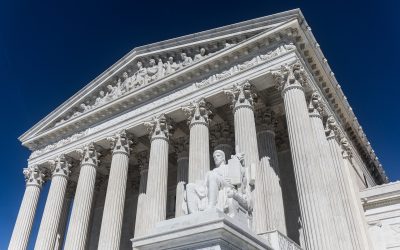Monday’s approval in the U.S. Senate of a sweeping “accounting reform” bill will do little to prevent future corporate meltdowns like those that have taken place at Enron and WorldCom. In fact, the legislation will accomplish almost nothing as a practical measure in the short-term, except for creating a new bureaucratic turf war between the Securities and Exchange Commission and a new federal accounting standards board created by the Senate bill. Like much of this “corporate accountability scandal,” the principal goal is advancing tactical political interests in anticipation of the November congressional elections. But that doesn’t mean the defenders of capitalism and economic freedom should rest easy, either.
The recent corporate scandals are the direct result of two separate, yet related problems: CEOs and stock analysts who try to fool the marketplace by pursuing high-risk short term strategies that can never succeed in the long run; and, more importantly, a U.S. tax code that places a premium on dishonest accounting and misleading the public.
The first problem doesn’t require government intervention, because the equity markets already flush out those who try and fool them. WorldCom didn’t fall because of a government prosecution, but because their strategy of leveraging an unreasonably high stock price to acquire other companies created a quasi-Ponzi scheme that was too unstable to maintain. The only thing that enabled WorldCom to evade detection for as long as it did was not so much bad accounting as it was stock analysts who evaded reality by playing along with the scheme. There were, in fact, honest analysts who correctly predicted WorldCom’s demise, and those analysts are likely to be rewarded now by the same marketplace that got burned in the first place.
Politically, however, this poses a dilemma for members of Congress, especially Democrats, who adhere to the belief that nobody should ever have to suffer even a short-term loss. The fact that people got burned because of the collapse of Enron and WorldCom stock is some kind of moral outrage, at least according to people like Dick Gephardt, and the government must seek vengeance in their names. In this “reality,” investors are never liable for their mistakes, but corporate CEOs are all to be presumed guilty until proven to the government’s satisfaction.
Congress, of course, likes the issue of “accounting reform” because it enables them to avoid their responsibility in this matter vis-à-vis the tax code. The U.S. income tax, and its enforcement by the IRS, has created an environment in which specious accounting is not just beneficial, but practically essential to the survival of large corporations. Without the hundreds upon hundreds of shelters, loopholes and tricks, many U.S. businesses would never have any kind of profits at all to return to investors. It is in every American company’s interest to lie about their profits and earnings, because doing so will mean less taxes to pay. That is what the Democrats are concerned about, not the investors, as they claim to be. The only reason they want investors to get their “fair share” is so the they–the government–can seize their “rightful” penance in the form of double taxation on corporate profits.
(And keep in mind, it’s not as if Congress or the White House have ever operated according to the same rigorous accounting standards they now wish to put businesses under.)
The entire “accounting reform” plan is about one thing–control of information. By centralizing how accounting must be performed, Congress is trying to control the quality and content of information necessary for the markets to function properly. Once information is in the hands of the government, it’s only a short walk to actually dictating and managing outcomes.
We’ve seen this kind of behavior before, notably in drug regulation. Congress gives the FDA immense power to dictate how drugs are to be manufactured, distributed and advertised–to the point where the Supreme Court had to step in this year and reassert the First Amendment’s protection of the people from government attempts to deliberately keep them ignorant. The same is true in antitrust regulation, where the Federal Trade Commission is now prosecuting doctors who even talk to one another about what fees they want to charge insurance companies, on the grounds that the “public interest” will be harmed by such speech.
Once the administration has the power to dictate how businesses must account for their business, they will begin to dictate how that businesses is conducted. That’s not a slippery slope, but a simple fact of modern government, one which has been proven over and over again.




